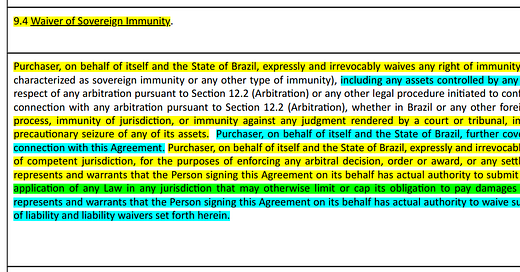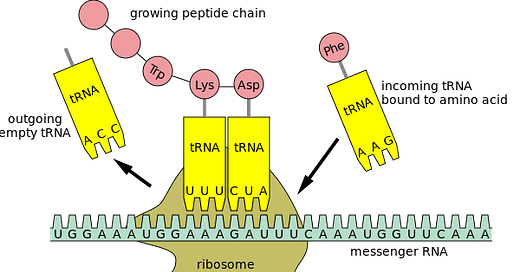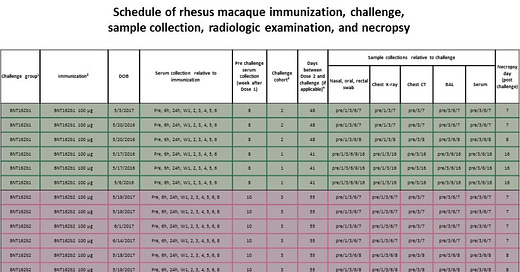
Discover more from Sense of Awareness
The X days of antisemitism
In the mid 1980s I was a young teenager who spent most of his nights calling BBS, Bulletin Board Services, which were the equivalent of websites but were only accessible via a landline modem, which is a device that modulates an analog carrier signal to encode digital information. The speeds were horrendously slow, 300 characters up to 1200 characters per second (or 1800 bits per second to 4800 bits per second). Compare that to your millions of bits per second today!
I was a complete geek, deep into technology, communication, and programming. As a result of that, I ended up meeting U, who was one year older than me was the smartest person I knew. He was so talented in writing code that he was hired by the Israeli national telephone company, Bezeq, which was founded as a government-owned corporation in 1984 (taking over the provision of telephony services in Israel which had been run directly by the Ministry of Communications). U was not even 18 years old at that time!
One day, in one of my visits to U’s place, he told me that he was given access to Bezeq’s X.25 network and that he will be happy to share it with me. X.25 was an early computer networking protocol that helped different computers communicate with each other over long distances, like a reliable postal service for digital data. It broke down information into smaller parts for efficient transmission, laying the groundwork for the internet we have today. In fact, in the early days of the internet, X.25 networks played a crucial role in facilitating communication between computers.
X.25 was practically out of reach of normal people. When you got an account on the network you had to pay for the traffic, and it was expensive. How much? You know that today when you use your mobile phone to perform data communication in a foreign country (data roaming) it expensive? Try multiplying it by 10, or 100. Only extremely large corporations and banks used it. And U and I.
I asked U how can he share it with me, and he explained that Bezeq gave him access, that this access is not monitored (he knew, he was writing the code related to that), and that no one talks about it because no one wants to be blamed.
So I got an access code, and suddenly the world has opened up to me. There were bulletin boards on the X.25 network, and even chat systems. One of the biggest chat systems in the world was run by QSD, which was located in France. The QSD system in France, also known as "Transpac," was a public packet-switched data network established in the late 1970s. It served as the foundation for various data communication services, including the Minitel system, which was a pioneering online service launched in France during the early 1980s that provided users with a range of services, such as online banking, directory assistance, messaging, and even online shopping, well before the widespread adoption of the internet.
The X.25 gave you an ID called network user addresses (NUA), which is similar to an IP address. It was shown to other users, and the prefix of the ID detailed your origin. in the QSD chat system you saw from which country people were connecting, but when I connected the system did not know where I was from, because I was the first person from Israel who had logged into it. One of the QSD’s admins contacted me, asked me where I’m from, and then updated the system. This led to being the first and only person on that system who had “Israel” next to his ID. If you think X (Twitter) has an antisemitism problem you should have seen the bombardment of hate messages I received the moment people saw the name Israel. The good news is that it wasn’t the current Arab-fuelled antisemitism. It was the good-old-let’s-burn-the-Jews right wing antisemitism. I spent many nights conducting online street fights with armies of people who hated me without even knowing who I was.
I’ve mentioned that the X.25 network had a lot of bulletin boards. It also allowed you to connect to bulletin boards which used the normal telephone network in America using a system called PC pursuit. X.25 PC Pursuit System was a computer network service introduced by CompuServe in the early 1980s. It allowed users to connect their personal computers to the CompuServe network using the X.25 networking protocol and vice versa. The magic word was ATD, where AT stood for Attention, and D stood for dial, which meant that when you connected to the PC pursuit system it allowed you to call BBS’s everywhere you want in the US, for free. OK, it was probably not really free, it was probably charged on the X.25 account you were using, but hey, that was free for me, and it was good enough!
A call in the middle of the night
The X.25 connectivity changed my life, and especially my sleep patterns. You see, after 9pm at night you had a flat tariff, which meant one charge no matter how long I was connected. Before U gave me his X.25 credentials I used to call different BBSs in Israel, but now I didn’t have to. I had access to a lot of systems around the world which were on the X.25 network, plus the ability to call endless BBSs all around the US. I had accounts everywhere, and I was as happy as can be.
One of the X.25 bulletin board services I used to connect to was located in Germany, and it was very popular by hackers around the world. It had a chat system, which was not as busy and extensive as the chat system in QSD and it didn’t do a prefix translation so no one knew I was from Israel. Or so I thought.
Suddenly, one of the users, a person who had registered himself with the nickname Phoenix who was on the chat sent me a message:
“U?”
This person, who was NOT from Israel (I couldn’t identify his X.25 prefix) just approached me using the name of my friend. U is not that common name, so I was pretty shocked. The following message shocked me even further.
U Xxxxxx???”
Xxxxxx stands for my friend’s last name. There was no doubt, HE KNEW MY FRIEND.
“WHAT THE F IS GOING ON???” I thought to myself, and so replied to him:
“I’m not U, but I know U. How the hell do you know U?”
The guy replied to me “oh, sorry, I saw that you’re from Israel and I thought that the only person who would be here from Israel will be U. I know U.”
“How do you know U?” I asked him, completely puzzled.
“Long story” he replied. “I love hacking”.
He then told me he hacked many systems online. I didn’t believe him, so he challenged me.
“do you know about PC pursuit?”
”Of course I know. Why?”
“Connect to any BBS you want using the PC pursuit, and I will tell you where you went.”
“Bullshit” I thought to myself, but agreed to try. I told him I’m going to contact a BBS in Florida, I logged out from the German BBS, connected to the pc pursuit system in Florida, used the ATD comment to contacted one of the BBSs, logged into it, logged out, connected again the Germans BBC, went on the chat, and told him: “tell me where I was”.
“Wait” he said, and after a moment or two he came back with the telephone number of the BBS I contacted. He wasn’t lying. He was a real hacker.
You need to understand, in 1984 the only hacker you ever heard about was a fictional hacker in the movie "WarGames”, which was a story of a hacker who accidentally hacks into a U.S. military supercomputer. The hacker in the movie was played by Matthew Broderick, but I was not speaking with an actor, I was speaking with a REAL hacker!!!!
“HOW DO YOU DO IT?” I asked him, almost begging him to know his secret.
“Wait, not here. Let’s talk. What’s your phone number? I’ll call you in 5 minutes”.
I provided that person with my phone number, I hung up the phone, and within minutes, sometime around 4am local time I got a phone call.
Phreaking USA
I picked up the phone, and I heard a young voice, who introduced himself as Nahshon. He was Jewish. He was two years younger than me, which means he was really young. He told me that he was from Australia, and that he met my friend because he came to Israel for a study visit and he met him there. He then told me he used phreaking to call me.
What is phreaking?
Before WhatsApp and other similar smartphone applications that allowed you an alternative method of calling other people and conducting a conversation (and sometimes video conversations) for free, there were many years in which calling someone who was located in another country was insanely expensive, unless you had a calling card. In the 1980s you had the ability to call other countries using a cheaper service. AT&T for example had local phone numbers across the world which you would call, be passed to an operator, and by using an account you set up with them you could call home at cheaper prices.
Actually, that wasn’t the only way you could have made cheap calls to phone numbers abroad. There was even a better alternative - FREE calls, if you knew how to hack the analogue telephone system, in what was known as phreaking. Freaking was a technique of sending very specific tones which allowed the person who did so to take control over the telephone system. It started in the 1960, when John Draper (also known as Captain Crunch), who was an engineer and phone enthusiast, discovered he could manipulate the phone system using a toy whistle that came in boxes of Cap'n Crunch cereal. The whistle emitted a tone at 2600 Hz, a frequency that could be used to manipulate the phone system's switches, in a technique that became known as "blue boxing”. In the 1980s the technique became more complicated, with multiple frequencies being used to hack phone systems. In fact, the first hacker’s magazine was called “2600: The Hacker Quarterly” and it started to be published in 1984.
Nahshon knew how to hack international calling services, this is how he called me. In fact, Nahshon knew much more than Phreaking.
Phoenix
What I didn’t know is that the young Jewish boy who called me, which identified online as Phoenix, is about to become a legend, one the greatest/notorious Australians hackers of all time. Few examples: In 1998 he hacked Citibank. In 1990 he hacked into NASA forcing the system into a 24 hour lock down and as far as I remember delayed the launch of a US space shuttle, the Australian Federal government agency for scientific research in the country (CSIRO), three American Universities, private mainframes and US government laboratories.
Nahshon Even-Chaim, nickname Phoenix, originally attended one of the most Orthodox Jewish schools in Victoria, but was sent to boarding school in Israel for about six months where he met my friend, who was also from an orthodox family and also studied in that boarding school. As the EXCELLENT book “Underground: Hacking, madness and obsession on the electronic frontier” which was written by Suelette Dreyfus and Julian Assange and published in 1997 describes, Phoenix hacking fate most likely came due to the broken home he grew in. He became friends with Force, who was one of the founding members of The Realm, which was a closed club of Melbourne hackers which Julian Assange was part of (known by the nickname “Mendax”). He was so good that Force invited him to join the hacker’s club via the shortest initiation process of any Realm member. There he met Electron, which was the nickname of Richard Jones, another (in)famous hacker who alongside Phoenix and another hacker with the nickname Nom (real name David John Woodcock) — were convicted in April 1990 of a range of computer crimes involving the intrusion into US defense and government computer systems and the theft of an online computer security newsletter in the late 1980s and early 1990 by the Australian Federal Police (AFP).
In the book “JULIAN ASSANGE - The Unauthorised Autobiography”, which was published in 2011 based on 50 hours of interview with Assange, he described Phoenix as “arrogant” because “he had once telephoned a New York Times reporter, calling himself ‘Dave’, to boast about attacks Australian hackers were making on American systems…Phoenix liked the attention.”
But Assange also states in the book that “There were some totally inspired hackers who were friends of mine: Phoenix, Trax and Prime Suspect.”
I talked for about half an hour with Phoenix. At the end, he told me “I’ve scanned (war dialled) a huge amount of phone numbers in the US. You should check this number out”. He gave a phone number. I wrote it down, I thanked him, and hang up.
I connected again to the X.25 network. I logged into the PC pursuit system, I instructed it to dial the number. On my terminal I’ve started to slowly see an ASCII animation, which was the animated GIF and the emojis of the 80s, using characters only. The screen showed me a logo. It was the US ministry of Defense. I immediately disconnected my modem from the phone line, and sat there shocked. This was not a movie, it was real. I set there in my room shaking out of both fear and excitement. What the hell just happened to me tonight?
My dad woke up, as usual, around 5:30, and he saw the light in my room. My door was open. He looked inside, and said “Again you didn’t sleep tonight?”
I did not tell my dad anything. I was too afraid.
In the afternoon I contacted U. I asked to urgently come to his place, and he agreed. When I entered I told him about Nahshon. I told him about what he told me, and asked him to teach me what he knows.
This was my introduction to the cyberworld's underground.
Ehden















What a fun bit of history to be involved with.. hackers, crackers & phreakers oooh lala! Sulette is awesome it's a great book; the amazing HPAUS crew were also key in the earliest Anonymous hactivist events when PayPal and big banks cut off WikiLeaks funding.
Some of the same cyber-angels still protect WikiLeaks servers & part of me is hoping insurance files now mirrored but unreleased will be leaked if Julian is extradited. On the anniversary of Aaron Swartz death they launched OpLastResort against DoJ and my fingers are crossed that more moves against Julian will unleash chaos in ruling elite web services & databases. <3
Fascinating account of those early days.
Am wondering if you know about David Rogers Webb and The Great Taking planned? He has a longer video and free PDF book explaining what has been done.
https://rumble.com/v4dhku9-irrefutable-federal-reserve-responce-to-the-european-legal-certainty-group.html
I ask as I wonder if an army of "White Hat" hackerscin this AI Blockchain World could do anything to disrupt it. Naive of me I know.